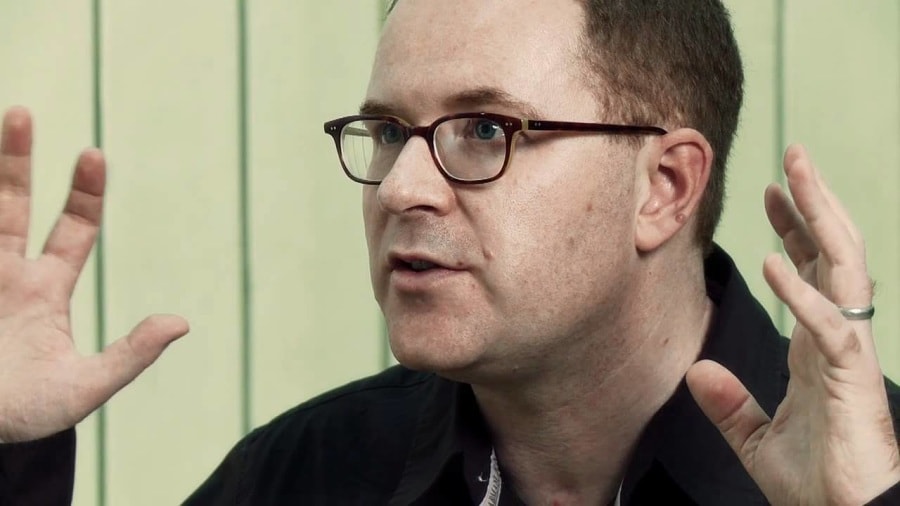The following is the foreword to a new edition of McPherson's plays, including The Night Alive, The Birds, The Veil, and Dance of Death.
The best plays come in a flash. An image, a feeling, and that’s it. You know these ideas because they are the undeniable ones that won’t let go. They pull you in and compel you to start scribbling notes. If you are a playwright and you have one of these on the go, you know you have a responsibility. To what? Something that doesn’t exist? But the good ideas feel like they do exist. They’re just beyond view, and you’re trying to capture them with glimpses that may or may not be accurate.
So many things can go wrong along the way between the vision and its presentation onstage: missed beats in the writing (or too many beats), the wrong cast, wrong director, wrong theatre, or just the wrong time. Any and all of these may consign your hard work to the “Who Cares?” file. And you know you are playing Russian roulette—it all comes down to those couple of hours on opening night. But you keep the faith and you pull the trigger. What else can you do?
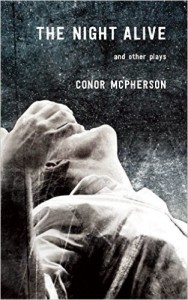 You start scribbling. Worry, issues of control, and even, ironically, a sense of longing to be free of the process, all propel you to write your first draft. Subsequent drafts can never quite fix all the problems, yet neither can they prompt the same exhilaration. Many playwrights I’ve talked with agree that the best moments are often those tentative notes when the ghosts first present themselves in your mind. They are so insubstantial, yet bear their complete mysterious history within. This is when playwriting is at its most private and, paradoxically, when the play is at its most beautiful. The more real you make it the less magic it retains. You are aware of this, but what can you do? You keep going. Always writing at the very edge of your limitations. And your limitations are not necessarily a bad thing. Your limitations are in fact what give you your unique voice. But it’s hard to view your limitations in a warm light when you’ve just read over your work and it makes you embarrassed.
You start scribbling. Worry, issues of control, and even, ironically, a sense of longing to be free of the process, all propel you to write your first draft. Subsequent drafts can never quite fix all the problems, yet neither can they prompt the same exhilaration. Many playwrights I’ve talked with agree that the best moments are often those tentative notes when the ghosts first present themselves in your mind. They are so insubstantial, yet bear their complete mysterious history within. This is when playwriting is at its most private and, paradoxically, when the play is at its most beautiful. The more real you make it the less magic it retains. You are aware of this, but what can you do? You keep going. Always writing at the very edge of your limitations. And your limitations are not necessarily a bad thing. Your limitations are in fact what give you your unique voice. But it’s hard to view your limitations in a warm light when you’ve just read over your work and it makes you embarrassed.
The truth is nobody really knows how to write a good play. You just do your best to avoid writing a bad one. The rest falls to fate. Joe Penhall once said to me, “Who knows if the magic is there and—even if it is—will the bastards see it?”, which I think sums up the car crash of hope, despair, and paranoia that accompanies artistic creation.
The enemy of art is not the pram in the hallway, it is self-consciousness. When you are young you know nothing, least of all yourself. You write plays quickly, perhaps in a matter of days. As you grow older—and if you’ve managed to survive some decades of playwriting—you may gain a little wisdom. But you lose your recklessness. Why? Because, like the aging stuntman, you know exactly what’s at stake each time you do it. Further, you are no longer new. Everyone knows what you can do and they have certain expectations. So you go the long way round, trying to surprise everyone. But going the long way round kills spontaneity.
And what’s wrong with that? Well, Neil Young’s late producer, David Briggs, said that the best way to record music is the simplest way. You get the mic as close to the sound as you possibly can and just record it as it is. “The more you think, the more you stink” was his mantra. Neil Young’s albums are full of first takes—often the very first time the band have ever played the song—because that’s where the magic is. Neil Young calls it “the spook.” In other words, you’ve got to be careful not to perfect what you are doing to the extent it has no soul left. Perfect is not best. Okay, so he’s talking about rock ’n’ roll, but there’s something in that for playwriting too.
And if there’s anything I can see that’s worth passing on it’s this: It’s as important to forget what you’ve learned as it is to learn.
The short story The Birds by Daphne Du Maurier was presented to me by the inimitable producer David Pugh. I had no flash of inspiration, just a desire to write it and to explore the female psyche (i.e., it has self-consciousness written all over it!). People have said it’s their favorite play of mine, but I suspect there are many others who felt I should stick to my more well-trodden ground. For myself, I like it because it really feels like someone else wrote it, and that’s a rare enough relief for any playwright watching their work onstage. I want to thank Joe Dowling at the Guthrie Theater in Minneapolis and Henry Wishcamper, who directed the American premiere. Their belief in the play has undoubtedly ensured its continued life in the United States, where it’s regularly being produced. Whatever I was working out in that play continues to draw directors and actors—and that’s everything.
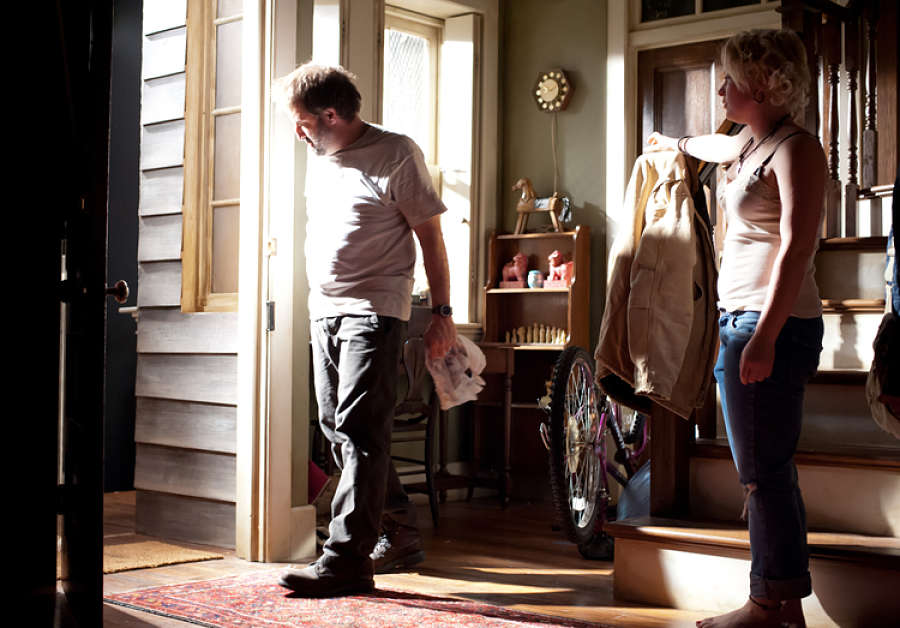
David Hare was once asked what advice he’d give to young playwrights, and he said: to enjoy the moment if your first play or two finds an audience. People are interested and you’re confident—because you have lots of ideas you haven’t tried yet. But, he cautioned, you must remember that sustaining that for 30 or 40 years, fighting through the sheer incomprehension that may greet your efforts to develop your craft, is no picnic.
Bearing this in mind, I recognize that, in some quarters, a certain incomprehension greeted The Veil. It was a play written out of the disgust and panic at how my country, Ireland, had managed to almost destroy itself over the previous 10 years. And personally I was also in thrall to the world of 18th- and 19th-century German transcendental philosophy, not to mention an obsession with James Joyce’s concept of time in Finnegans Wake. Talk about a heady brew! I think we presented a beautiful show (incredible design by Rae Smith and lighting by Neil Austin), and every performance was top-notch, but when all the moments were strung along together, maybe some people—certainly more than usual, anyway!—emerged wondering what all the ideas had to do with each other. And yet something tells me this play will be back in my life at some point, and that I may even begin to see it as one of my favorites some day because, strangely, it’s the tricky ones you end up most proud of.
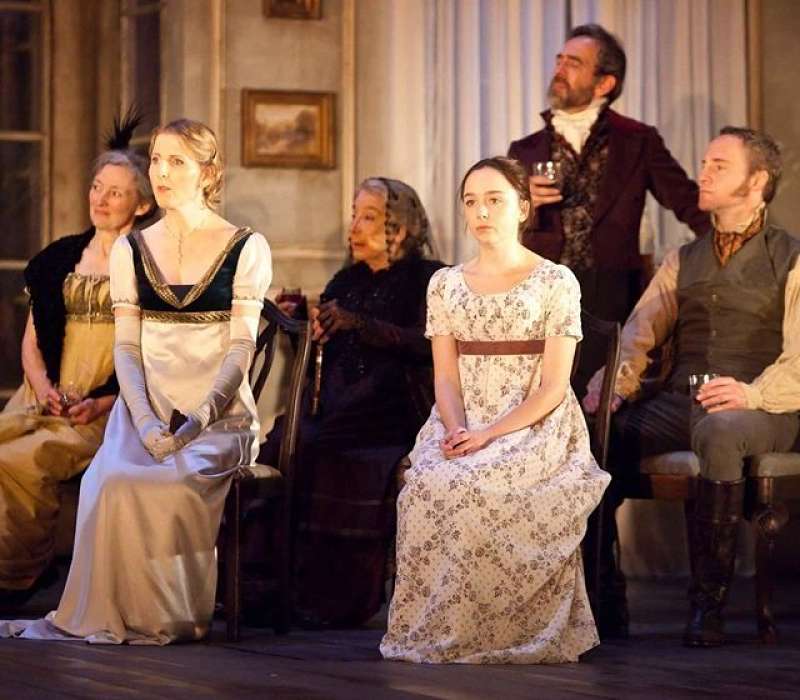
And then, out of nowhere, August Strindberg walked into my life, kicked me up the arse, and reminded me what it’s all about. Josie Rourke, who had just taken over at the Donmar Warehouse, asked me to consider adapting The Dance of Death for their young directors’ program. And Strindberg just took me right back to the beginning—i.e., it doesn’t matter what’s happening onstage as long as it has energy and emotion. Ideas flow from the energy, not the other way round. And we ended up with a cracking little production directed by Titas Halder starring Kevin McNally, Indira Varma, and Daniel La Paine that really blew people away. The U.S. premiere of the adaptation at Writers Theatre near Chicago was also a joy, with Larry Yando, Shannon Cochran, and Philip Earl Johnson. It was a source of great personal satisfaction that their production won the premier Chicago theatre prize, the Joseph Jefferson Equity Award for Best Production, and that Larry and Shannon won the awards for Best Actor and Best Actress, respectively.
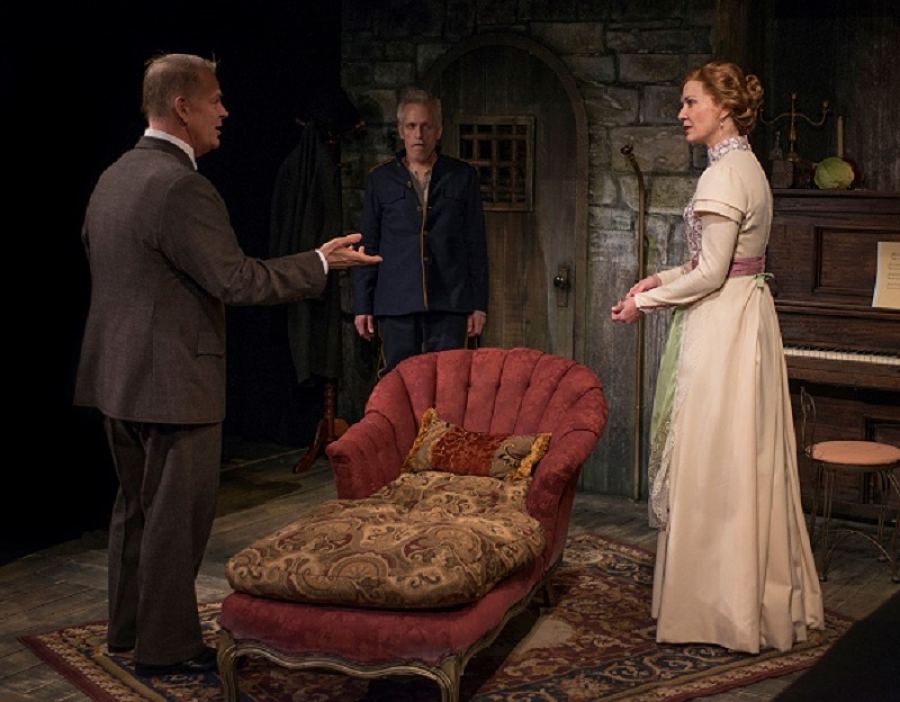
Instructive for me were how Strindberg’s plays seemed so free dramatically. Where most plays turned left, he went right, and vice versa. He was truly original in this regard, and I could see all the writers he’d broken a path for: Samuel Beckett, Harold Pinter, Edward Albee, and so on. And I decided that my next play would have no “ideas” (if that’s possible), only feelings. And it came in a flash one day while I was pushing my daughter on the swing in the park. And when I went home I started scribbling.
The play which emerged was The Night Alive. Bringing it to the stage was one of the most pleasurable experiences I’ve yet had in the theatre. I’m not saying this is because I brought anything to the table which I didn’t have before, but probably because I was simply a different person. I was beginning to understand that for a new play to come, the playwright has to be renewed also. By this I mean part of you has to die, and part of you has to be born. Every few years we change. I don’t know if we change for the better or for the worse, and that’s not even important. Our circumstances change, perhaps even subtly. You move home. A relationship ends. A child arrives. Someone passes away. All of these normal events rebuild your world and demand a new understanding.
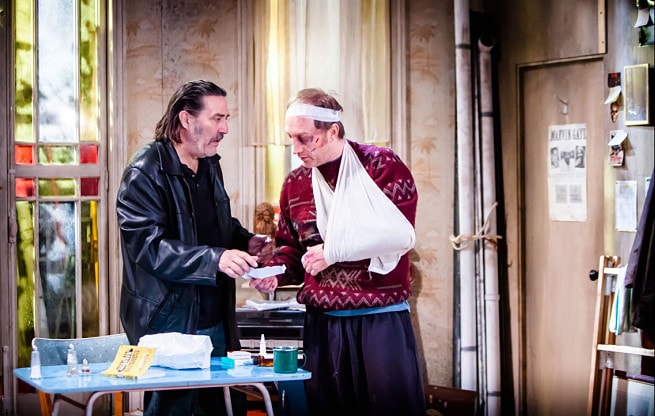
The writer seeks to place order, indeed beauty, on the chaos of experience. Whether this impulse is innate or conscious cannot be known. The writer writes because this is how they function. Without it the writer will lose their mental health. The question of free will versus determinism is interesting within this context. Does one choose a subject (or an “idea”), or are we compelled to write about the only subject we can write about at that time? I suspect it’s the latter. And this is of course a paradox: How can you be creative if you do not freely “choose” your subject?
The answer lies somewhere in the middle. The writer does not truly create. They merely interpret. Their skill as an interpreter affects the success of the project, but in a sense all writing is really only an adaptation of an already questionable and unstable reality.
But of course, the playwright is also required to be a collaborator and my accomplices in this case—Ciarán Hinds, Jim Norton, Michael McElhatton, Caoilfhionn Dunne, and Brian Gleeson—could not have more perfect. There was a tremendous balance in the cast. While all were very different, each performer complimented and augmented the strengths of the others. This was especially useful considering that our sole guiding principle was to stay ahead of the audience. We shifted mood and tone as often and as stealthily as we could, allowing the substance of the play to exist beneath the surface, in between the lines, in the space between the characters’ needs, histories and motivations.
And what was that substance? Well, we never discussed it. We never regarded the text of the play as the most important thing. We did no “table work” (i.e., sitting round a table discussing the script). From the first day of rehearsal we were on our feet, digging into every moment, mining for the hidden details underneath, indeed beyond, the play.
All I can say is that the particular chaos at the heart of The Night Alive seems to be specifically that of broken families. No parent is with their child, no family is intact, almost no one has a home. And yet, as in a nativity play, shelter is found, alongside love, redemption, and rebirth.
When we presented the play in London at the Donmar Warehouse, some critics struggled with the uplifting outcome, comparing it unfavorably with earlier, gloomier work. And yet when we presented the exact same production in New York at the Atlantic Theater, the play received the best reviews I’ve ever had, and the New York Drama Critics’ Circle presented me with their award for Best New Play of the year. A pat on the head from critics may not sit well with the rebellious self-image of most playwrights, but the truth is, we’ll take the love.
Whereas in the past I had shunned opportunities to see new productions of my plays, for some reason with The Night Alive, I felt compelled to attend to help with productions at Steppenwolf in Chicago and at the Geffen Playhouse in L.A. There was still something in the nebulous heart of the play I could never quite grasp, but which always drew my attention.
To have your play accepted so unconditionally is the kind of playwriting equivalent of a climber reaching a summit. You get a good, clear view of your journey to this point, but at the same time you are drawn towards other mountains, now shrouded in the mist.
All you know is that you have to go right back down if you’re ever going to get up there again.

